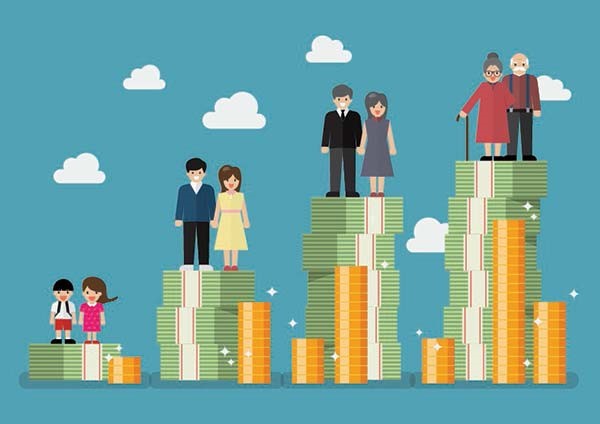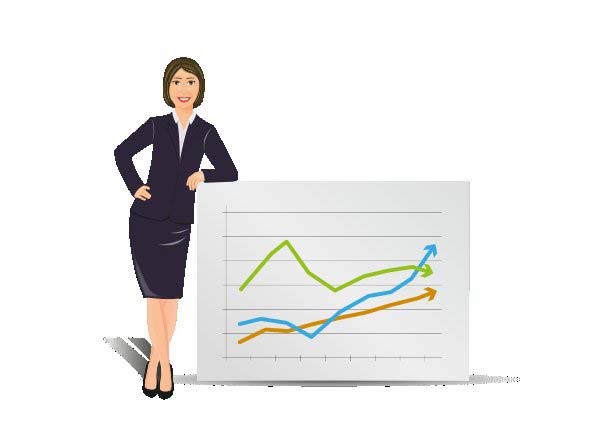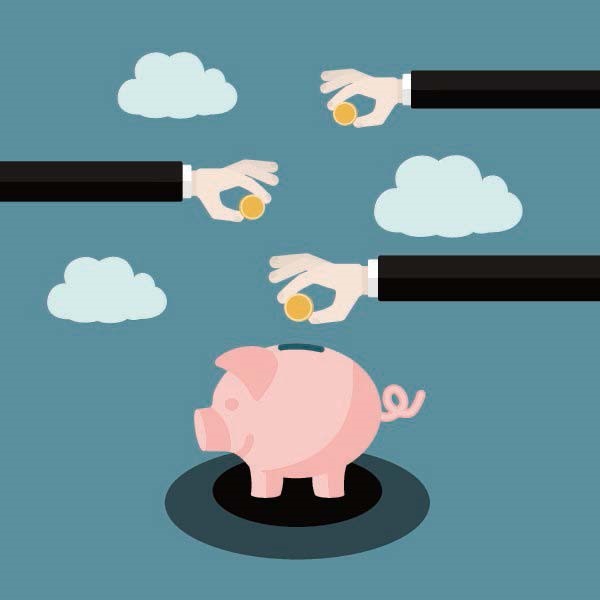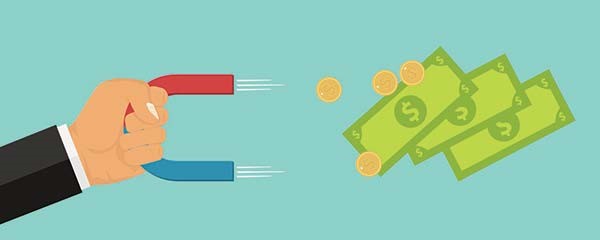
Compare
Real Estate Agents
Ontario 1-613-686-4796
Quebec 1-514-600-6092
ON: 1-613-686-4796
QC: 1-514-600-6092
Compare 3 Real Estate Agents.Find Your Real Estate Agent in 2 mins
+380 Partners across Quebec and Ontario

Compare
Real Estate Agents
Real Estate Agetns Submissions
Why investing in real estate can be the ideal investment for families to achieve financial independence
It is the dream of many families to achieve financial independence before retirement age. Some of the most common life goals include being able to enjoy life with our children, not having to worry about bills, and being able to carry out projects that are important to us. However, most Quebec families use outdated strategies to try to get there and often do not consider other options that are very lucrative.
When you start saving more money or have extra income, you quickly wonder how to generate more income. You will start looking into different types of investments to see which one is most likely to provide the best return in the long run. But have you ever thought of investing in real estate?

Many families have made a fortune through real estate, and many are currently on the road to financial independence through this often underrated investment.
But before going into the details, let’s look at what are the main investments used by Quebec families today to save for retirement.
What are the most popular investments for young families in Quebec?
In Quebec, the attitude of young families is often very conservative. They want to put their money into something that is safe but also yields a return. In the financial markets, it is very rare to find a product that is both safe and very profitable. Risk and performance are two principles that are perpetually linked.
The first thing most households will normally do when they start saving is to open an RRSP and a TFSA in which they will put their money into various financial products such as mutual funds, stocks, bonds, etc. This is not a bad thing at all but this strategy is based on a very long-term investment perspective. You will not become wealthy in 15 years through your savings in your RRSP or TFSA although this is entirely possible.
Generally, financial planners calculate an average long-term return of about 6%. It’s not bad but it’s not necessarily the best way to grow your money and get the best return.
If you want to make the most of your money and get the most profit, INVESTING IN REAL ESTATE could be the ideal strategy for you. No, it’s not that complex, and no, you do not have to be a real estate expert to do it. Many families invest in real estate without much experience but with the right support and the right professionals, it’s possible!

What does Investing in real estate mean exactly?
Have you ever heard someone talk about real estate investing without really understanding what it was? Do not worry, it’s actually a lot simpler than it sounds! Investing in real estate is usually done in two ways: FLIPS or the purchase of an income property. We will be interested in the second way, which is much simpler and safer.
When a professional tries to explain what investing in real estate means, he simply says that this is a project where you buy a building with several units which you will rent to tenants. That’s all! You buy a building, and you rent out housing. It isn’t any more complicated than that.
To buy a building, you obviously need savings to invest but if you already own a house, there are some strategies to facilitate the purchase of a PLEX or income property. But how can real estate help you achieve financial independence faster than investing in your RRSP?
This is an excellent question!
Achieving financial independence with real estate- are you interested?
Okay, let’s get into the heart of the subject. How can buying an income property and real estate investing help you achieve financial independence?
To answer this question, it is very important to understand that there are 3 SOURCES OF RETURN in real estate! Not one, not two, but THREE! When you buy an income property, it is usually to rent the units to earn income. We can say that your building generates income. However, your building also comes with its share of expenses. There are taxes to pay, expenses for maintenance, insurance, etc. At the end of the year, as with any small business, you will look at the total of your income and expenses. If your income exceeds your expenses, then you have what is called surplus cash (also called cashflow). Cashflow is the # 1 source of real estate returns.
Among the expenses that your building costs you, a significant part is the mortgage payment. Indeed, unless you have paid your building in cash, which is not advisable, you have a mortgage to pay each month. However, since it is your tenants who live in your building, it is they, via their rent, who will repay your mortgage. This is called capitalization. The fact that your renters make you rich by paying down your mortgage and it is the second source of return.
Finally, your building has a certain value which fluctuates according to the real estate market’s condition. The market fluctuates according to a multitude of very complex factors but what is important to note is that historically, the values of income properties have always increased over the long term. The value of your building over time is called capital gain and it is the third source of real estate yield.

Therefore, in REAL ESTATE INVESTMENT, your return does not come from interest, dividend, or capital gain on financial securities. Your return comes from 3 different sources that, when combined, can offer you an extremely attractive return.
The return on an income property usually exceeds 15% gross per year. In addition, thanks to the leverage effect, it is possible to use equity (the difference between the value of your building and your mortgage) to finance the purchase of other income properties later. If you own a home, it’s even possible to do it with your property.
In addition, real estate is a tangible investment that is very motivating. It’s not like investing in an intangible investment portfolio where you do not see what you hold. In real estate, as we say in jargon, you hold brick and mortar. People who invest in real estate are generally richer in the long run and reach financial freedom faster because they make better returns and reinvest their profits constantly.

Example of how a family can make money by buying an income property?
Well, all that sounds good when it is explained like that but you’re probably wondering what it looks like when you use real numbers and a real building.
Well, let’s do the exercise! Imagine a family with two children whose parents have $50,000 in savings. They want to invest their money in order to get the best return possible. They are reluctant to put their money in RRSPs in shares that earn 8% a year in a compound way or invest their money in the purchase of an income property.
NOTE: The following example was simplified intentionally. It does not take into account taxation, inflation, or the financial concept of discounting. It is for illustrative purposes only and has a gross return based on historical forecasts and data.
INVESTMENT SCENARIOS
We will use a holding period of 15 years for both scenarios. The yields compared are crude. Refer to our “NOTE” below for all details.
Scenario 1: Placing $50,000 in RRSP Shares
Investment amount: $50,000
Long-term forecast interest rate: 6% compounded
Length of retention: 15 years
Value of investment by the 15th year: $119,827
Gross profit realized by the 15th year: $69,827
Scenario 2: Investing in the purchase of a revenue property
Building: Duplex
Purchase price: $230,000
Down payment: $46,000
Contingency Reserve: $4,000
Mortgage: $184,000
Amortization: 25 years
Interest rate: 3.4%
Monthly Mortgage Payment: $909
Annual Mortgage Payment: $10,908
Annual expenditures: $5,500
Annual revenue: $18,000
#1: Cash flow Analysis
Annual Surplus = Annual Revenues – Annual Mortgage Payment – Annual Expenditures
Surplus cash flow = $18,000 – $10,908 – $5,500
Surplus cash flow per year = $1,592
The surplus of cash accumulated after 15 years = $23,880
#2: Capitalization Analysis
Mortgage Year 0: $184,000
Mortgage balance year 15: $92,461
Repaid capital over 15 years: $91,539
#3: Analysis of the surplus value
The building is considered to have been paid at fair market value.
Value of the building as of date 0 (of purchase): $230,000
We will choose a growth rate of 1% per year in the long term.
Value of the building by year 15: $267,022
Added value over 15 years: $37,022
TOTAL GROSS PROFIT = $23,880 + $91,539 + $37,022
TOTAL GROSS PROFIT = $152,441
COMPARATIVE ANALYSIS
Example 1: Investment at 6% interest
Final profit: $69,827
Final Profit + upfront investment: $119,827
Example 2: Real Estate Investment
Final profit: $152,441
Final Profit + upfront investment (down payment and reserve): $202,441
CONCLUSION: By choosing to invest in real estate, the family would make a profit of $152,441 over 15 years, compared to only $69,827. We can, therefore, say that the family would benefit significantly by choosing to invest in real estate rather than invest their money in RRSPs.
Note: Obviously, all buildings are different and the profitability of a project largely depends on its planning. You must always be guided by a competent professional. He will be able to help you to structure your project, evaluate your options, and calculate the profitability of an investment, free of charge!

Real estate, the best investment to achieve financial independence!
As the above example has shown you, it can be fairly advantageous for a family to put their savings into buying an income property rather than leaving them in an RRSP.
Obviously, buying an income property requires more management than a simple investment portfolio but if you are willing to spend a few hours a week managing your investment, it can be very rewarding. Who said that the path to financial independence was a passive one?
An income property is an active investment and many families are developing a passion for real estate over time. It is an option where you can combine profitability with enjoyment!
However, investing in real estate may seem like a big project and if you do not know much about it, you can take time to know more and learn. This is understandable!
Nevertheless, there are professionals who devote their time to helping young families
plan their real estate investment projects. They are called real estate brokers! They can help you evaluate your options and prepare your project!

Get the help of a professional to plan your investment project, free of charge!
If you have paid attention until now, you have probably come to realize that real estate investing is a very powerful strategy for wealth building which could help you achieve financial freedom. Yet, many families hesitate at this stage- the stage of “oh that would be fun, but I do not know anything about it”!
Well, if you were told that you do not have to be a real estate expert to buy an income property, would that increase your interest? Probably.
Indeed, if you are a family who wants to get a good return on your savings and real estate is interesting for you but you lack the necessary know-how, do not give up!

You can get the assistance and expertise of a real estate professional, absolutely free of charge! Yes, you can ask the help of a real estate broker who will be happy to take the time to evaluate your investment project, look at your options, and then plan all the steps of your project.
On your part, you will learn the financial aspects of this type of investment, and you will have an expert to guide and assist you. This is to your advantage.
The question is: how can you find a professional broker to assist you in your project?
Ready to invest and take the path to financial freedom? Fill out our form to get help from a professional!
Are you ready to invest in real estate and take the path to financial freedom? If your family wants to get the assistance of a professional to evaluate your options and plan your project to ensure its profitability, we have the solution for you!
Simply fill out the following form to receive FREE offers from real estate brokers in your area. With just a few clicks, you will receive email offers from several professional brokers who can help you in your investment project.
There is no charge and no obligation on your part. Our service is also fast and efficient!
This is the best way to launch your real estate investment project and find the best professional to guide you.
Find an expert to assist you in your project and launch without delay so that your family can be on the road to financial independence!
RECEIVE PROPOSALS FROM 3 PASSIONATE AGENTS AND CHOOSE FREELY THE BEST ONE FOR YOU
Buying or selling a property has a direct impact on your budget and your quality of life. This is why it is so important to have the right person assisting you. Use our service to find a real estate professionnal who truly meets your expectations.


Compare 3 Real Estate Agents
Complete the form below and receive proposals from 3 real estate agents. Compare : Commission, Service and Personality

